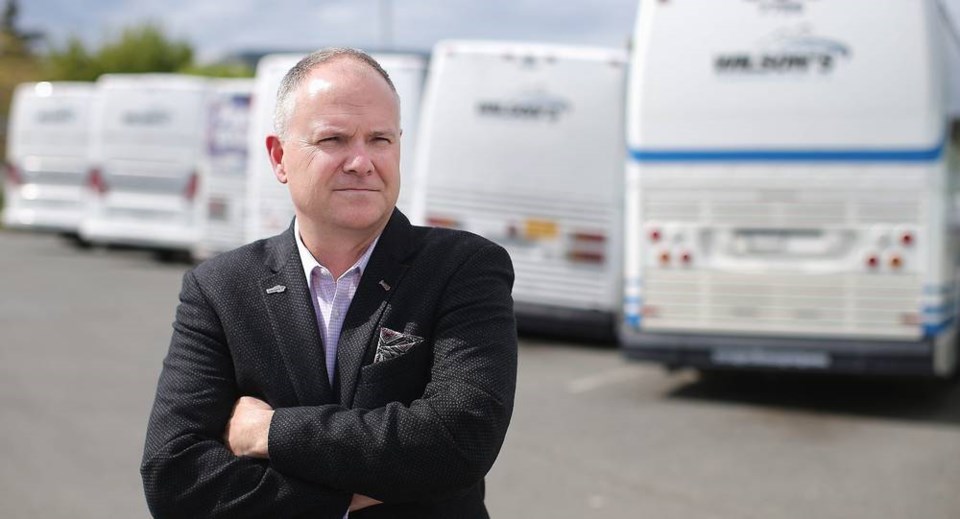The new B.C. Motor Coach Coalition is calling for federal and provincial support as members fear they may be forced to close due to “devastating losses” amid the pandemic.
Grants and interest-free loans from senior governments are necessary to keep the sector alive, John Wilson, president and chief executive of Wilson’s Transportation in Victoria, said Thursday.
The 12-member coalition was formed to raise awareness about the sector and encourage senior governments to help a group of businesses that are not subsidized. Many are family owned, Wilson said.
Although B.C.’s small and medium-sized business recovery grant offers up to $40,000, that’s not enough to support a company with a large fleet, Wilson said. “You can imagine what just servicing the debt is on a monthly basis.” A new motor coach costs about $600,000. Other federal programs do not offer enough help for the sector, the coalition said.
It’s essential that motor coaches are ready to go when they’re needed again, said Wilson, noting a survey of B.C. motor coach companies found close to 70 per cent worry they won’t make it through the pandemic. He said the industry across the province is down a minimum of 95 per cent in gross revenue since March 1, and doesn’t expect a return to anything more than 50 per cent revenues for 2021.
Wilson said his own company has just 40 to 50 employees working, about 25 per cent of the usual workforce. The company’s gross revenues fell 95 per cent at the start of the pandemic, although that moved to an 80 per cent loss and is now about 90 per cent.
The company’s operations include the B.C. Ferries Connector between Victoria and Vancouver, the Vancouver Island Connector between Victoria and Campbell River, and the Tofino Bus Company. All are at reduced service levels. Its Gray Line hop-on, hop-off double-decker service only runs on Saturdays instead of seven days a week.
Wilson’s Capital City Station on Douglas Street is now closed. “It has been devastating,” Wilson said.
Brad Sidjak, general manager of International Stage Lines in Richmond, said his company has operated six charters between March and October, when it would normally operate more than 5,000 trips throughout B.C.
The coalition said without further government support, the sector could see massive reductions in service, resulting in hardship for many people. “We not only serve the tourism industry, but also youth groups, senior citizens, non-profits, local sports teams, school groups, and people at risk,” Sidjak said.
In July, the B.C. Trucking Association, which represents motor coach companies as well as freight carriers, said 67 per cent of companies had implemented temporary layoffs and another 33 per cent carried out permanent layoffs.
“While some companies were able to resume their scheduled services over the summer months as restrictions eased, many motor coach companies that rely on private group charters have yet to see business return.”



